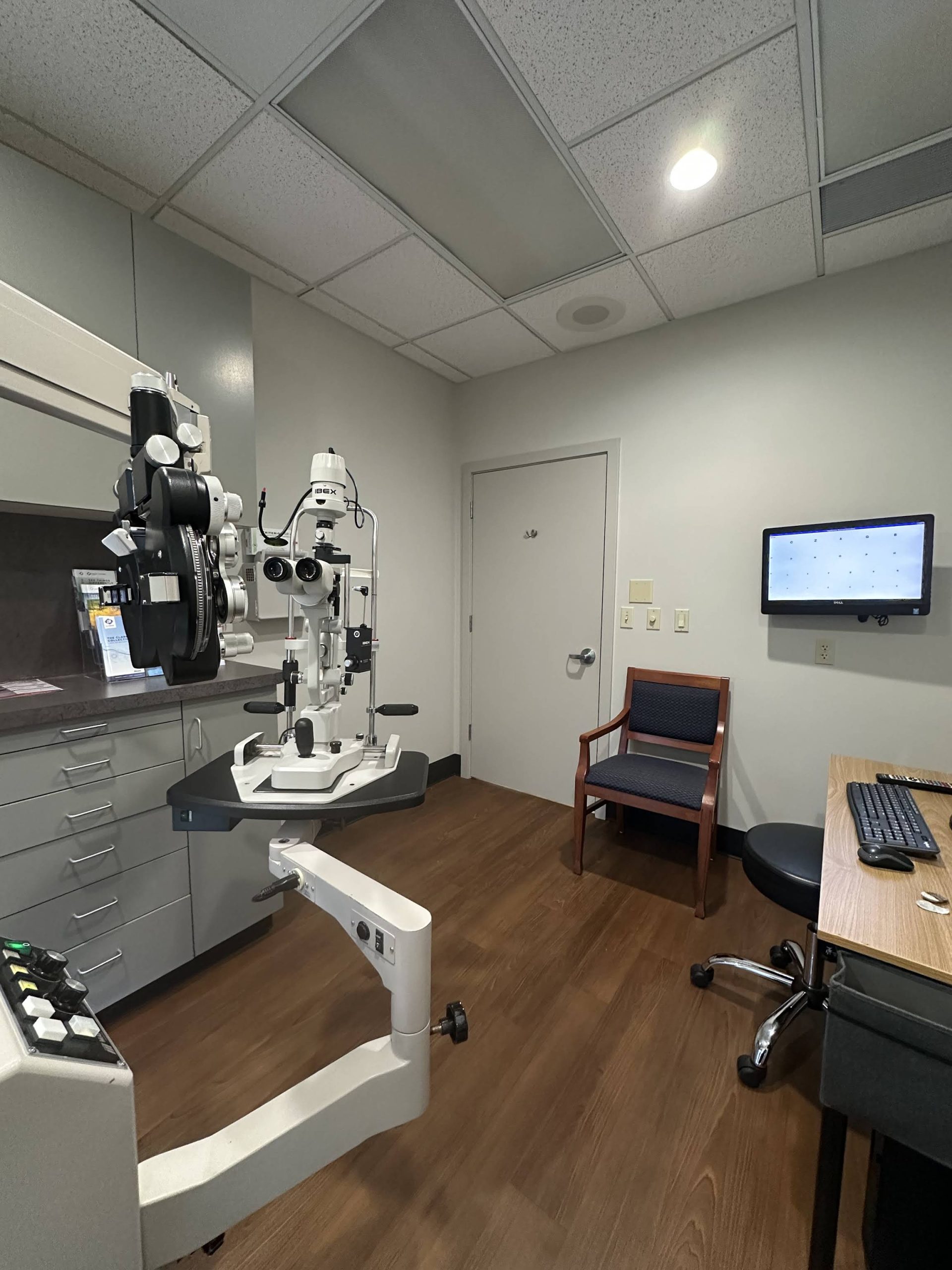 In recent years, the field of ophthalmology has witnessed remarkable advancements, particularly in the realm of cataract surgery. One of the most innovative developments is the introduction of light adjustable lens (LAL) implants. These lenses offer a unique solution for patients seeking optimal vision correction after cataract surgery. In Redmond, WA, the availability of these advanced implants is transforming the way patients experience post-operative care and visual outcomes.
In recent years, the field of ophthalmology has witnessed remarkable advancements, particularly in the realm of cataract surgery. One of the most innovative developments is the introduction of light adjustable lens (LAL) implants. These lenses offer a unique solution for patients seeking optimal vision correction after cataract surgery. In Redmond, WA, the availability of these advanced implants is transforming the way patients experience post-operative care and visual outcomes.
Understanding Light Adjustable Lens Technology
The light adjustable lens is a revolutionary intraocular lens designed to provide patients with customizable vision correction. Unlike traditional lenses, which are fixed in their refractive power, LALs can be adjusted post-operatively using a specialized light treatment. This technology allows for fine-tuning of vision, ensuring that patients achieve the best possible visual acuity.
How LALs Work
Light adjustable lenses are made from a unique photosensitive material that responds to ultraviolet (UV) light. After the lens is implanted during cataract surgery, patients undergo a series of light treatments to adjust the lens’s shape and refractive power. This process is painless and typically takes only a few minutes. By carefully calibrating the lens, eye care professionals can optimize vision for distance, intermediate, and near tasks.
During the adjustment phase, patients may be asked to perform specific visual tasks to help the eye care professional determine the optimal lens configuration. This interactive process not only empowers patients but also ensures that they play an active role in their vision correction journey. The precision of this technology means that adjustments can be made to fine-tune vision even after the initial healing period, providing flexibility that traditional lenses simply cannot offer.
Benefits of Light Adjustable Lenses
The primary advantage of LALs is their ability to provide a personalized visual experience. Patients can achieve clearer vision tailored to their specific needs, whether for reading, driving, or engaging in hobbies. Additionally, the adjustable nature of these lenses minimizes the chances of needing glasses or undergoing further corrective procedures after surgery.
Another significant benefit is the reduced risk of complications associated with traditional lens implants. With LALs, patients can often avoid the common issues of over- or under-correction that can occur with standard lenses. This adaptability not only enhances patient satisfaction but also contributes to overall better visual outcomes. Furthermore, the technology is particularly beneficial for patients with astigmatism or those who have previously undergone eye surgeries, as it allows for corrections that are specifically tailored to their unique visual needs.
Moreover, the light adjustable lens technology is continually evolving, with ongoing research aimed at improving the materials and methods used. Innovations in this field may soon lead to even more advanced options, such as lenses that can adapt to changing vision over time or those that incorporate multifocal capabilities. As this technology progresses, it holds the promise of transforming the landscape of vision correction, offering patients not just clearer sight but also a more dynamic and responsive visual experience.
Who is a Candidate for Light Adjustable Lens Implants?
While light adjustable lenses offer numerous advantages, they are not suitable for everyone. Ideal candidates typically include individuals undergoing cataract surgery who desire a more tailored visual correction. Patients with specific lifestyle needs, such as those who engage in activities requiring sharp vision at various distances, may find LALs particularly beneficial. For instance, avid readers, athletes, or those who frequently switch between near and far vision tasks can experience significant enhancements in their quality of life with the precision that LALs provide.
Pre-operative Considerations
Before proceeding with light adjustable lens implants, a thorough eye examination is essential. Eye care professionals will assess factors such as the patient’s overall eye health, the degree of cataract formation, and existing refractive errors. These evaluations help determine whether LALs are the appropriate choice for the patient. Additionally, patients with specific eye conditions, such as macular degeneration or diabetic retinopathy, may require further evaluation to ensure that LALs will not exacerbate existing issues.
It is also important for patients to discuss their visual expectations and lifestyle needs with their ophthalmologist. Understanding the potential outcomes and limitations of LALs can help set realistic goals for post-operative vision. Patients should be encouraged to ask questions about the procedure, recovery time, and any potential risks involved. This dialogue fosters a collaborative approach to care, ensuring that patients feel informed and confident in their treatment plan.
Post-operative Care and Adjustments
After the implantation of light adjustable lenses, patients will typically return for follow-up appointments to monitor their healing process. During these visits, the ophthalmologist will assess the lens’s performance and determine if any adjustments are necessary. The light treatment sessions can be scheduled based on the patient’s recovery and visual needs. These sessions utilize a specialized light source to fine-tune the lens’s power, allowing for a customized correction that adapts to the patient’s unique vision requirements.
Patients may experience immediate improvements in vision, but the full benefits of the LALs may take some time to manifest as adjustments are made. Regular communication with the eye care team is crucial to ensure optimal results. It is also essential for patients to adhere to post-operative care instructions, which may include using prescribed eye drops, avoiding strenuous activities, and attending all scheduled follow-ups. By actively participating in their recovery, patients can maximize the advantages of their new lenses and enjoy a clearer, more vibrant world around them.
Choosing the Right Provider in Redmond, WA
When considering light adjustable lens implants, selecting a qualified and experienced ophthalmologist is paramount. In Redmond, WA, several practices specialize in advanced cataract surgery and lens technology. Patients should look for providers with a strong track record in performing LAL procedures and a commitment to personalized patient care.
Researching Local Ophthalmologists
Potential patients can begin their search by researching local ophthalmologists who offer light adjustable lens implants. Online reviews, patient testimonials, and professional credentials can provide valuable insights into a provider’s expertise and patient satisfaction. Additionally, scheduling consultations with multiple practitioners can help patients feel more comfortable with their choice.
Understanding Costs and Insurance Coverage
The cost of light adjustable lens implants may vary based on the provider and the specifics of the procedure. Patients should inquire about the total expenses involved, including the surgery, lens, and any follow-up treatments. It is also advisable to check with insurance providers regarding coverage for LALs, as policies can differ significantly.
Conclusion: A Vision for the Future
The introduction of light adjustable lens implants marks a significant milestone in cataract surgery and vision correction. For residents of Redmond, WA, this innovative technology offers the promise of enhanced visual outcomes and a more personalized approach to eye care. As advancements in ophthalmology continue to evolve, patients can look forward to improved solutions that cater to their unique visual needs.
Ultimately, light adjustable lenses represent a forward-thinking option for those seeking to regain their vision and enhance their quality of life. With the right provider and a commitment to ongoing care, patients can embark on a journey toward clearer, more adaptable vision.
If you’re ready to explore the benefits of light adjustable lens implants and take the first step towards a future of clearer, more adaptable vision, Overlake EyeCare is here to guide you. Dr. Mary Coday and our team are committed to providing personalized eye care, utilizing the latest advancements in intraocular lens technology to meet your unique visual needs. With our expertise in cataract surgery and a comprehensive range of lens options, including the Eyhance toric, Vivity, Synergy, Clareon, and Panoptix multifocal lenses, we’re dedicated to helping you achieve the vision you deserve. Contact Us Today to schedule your surgical consultation and discover the difference that precision and personalized care can make in your life.

